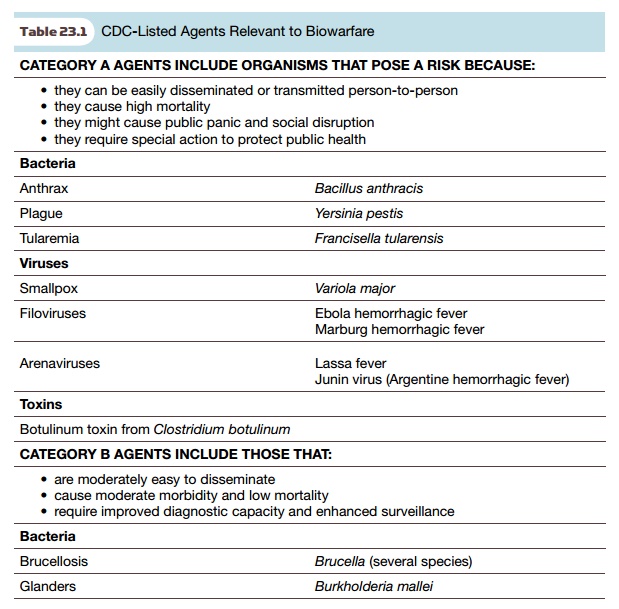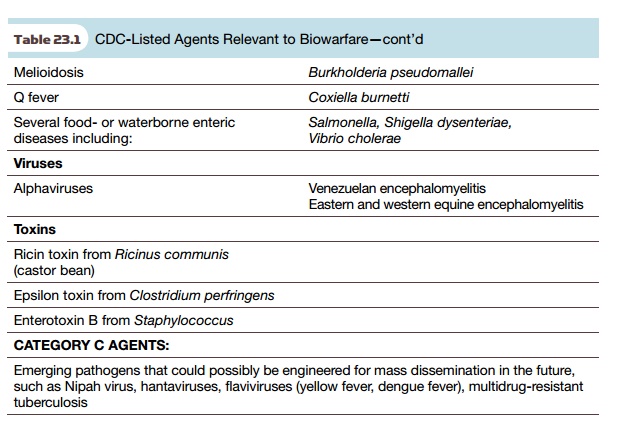Chapter: Biotechnology Applying the Genetic Revolution: Biowarfare and Bioterrorism
Which Disease Agents Are Suitable for Biological Warfare?
WHICH
DISEASE AGENTS ARE SUITABLE FOR BIOLOGICAL WARFARE?
Which disease? Bacteria, virus, or
eukaryote? Most bacterial diseases can, in principle, be cured by antibiotics,
whereas viral diseases cannot. On the other hand, bacteria are easier to grow
than viruses. Many bacteria can be grown in relatively simple and cheap culture
media. However, the production of virus particles requires culturing host cells
for the virus to infectand consequently is more difficult because animal cells
have complex growth requirements. Pathogenic eukaryotes such as Plasmodium (malaria)
or Entamoeba (amoebic dysentery) have rarely even been considered as
possible biowarfare agents because of the difficultyof culturing them on a
large scale. Pathogenic fungi are a possible exception: some can be grown
relatively easily. Although viruses might be grown in quantity by a government,
large-scale virus culture is probably impractical for small groups of bioterrorists.
Outside the tropics, most incurable
infectious diseases are due to viruses. The fundamental issue is that viruses
are not themselves living cells but rely on the host cells they infect to assemble
new virus particles. Consequently, chemical agents that prevent virus
replication usually kill the host cells, too. A small and growing range of
specific antiviral agents are available; nonetheless, no cure yet exists for
most viral diseases.
Vaccination may protect against catching
many viral diseases such as mumps, measles, and smallpox. However, protection
against a viral biowarfare agent would require an effective vaccine against the
particular strain of virus being used and vaccinating a sufficiently large proportion
of the target population to prevent spread of the disease.
Among the bacterial diseases, anthrax,
bubonic plague, brucellosis, tularemia, glanders, and melioidosis have all been
suggested as possible biological weapons. The properties of these agents are
summarized in Table 23.1 . A variety of viruses have been suggested, including both
tropical diseases such as dengue and yellow fever and emerging diseases such as
Lassa fever and Ebola virus, but the only consistent choice among viruses seems
to be smallpox.


Related Topics